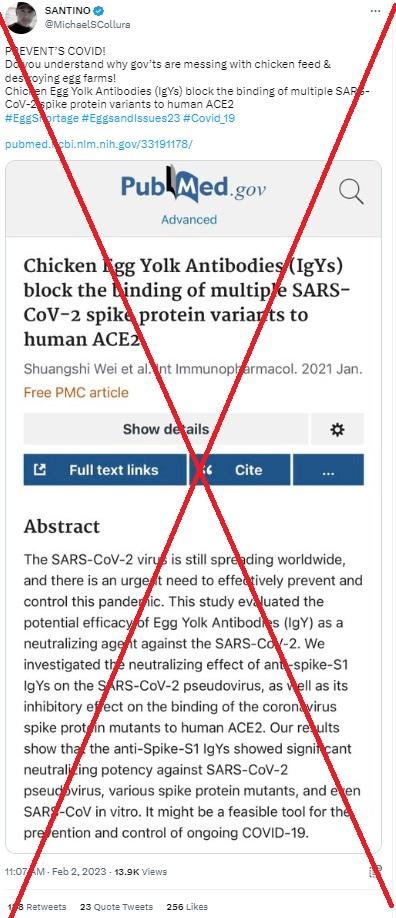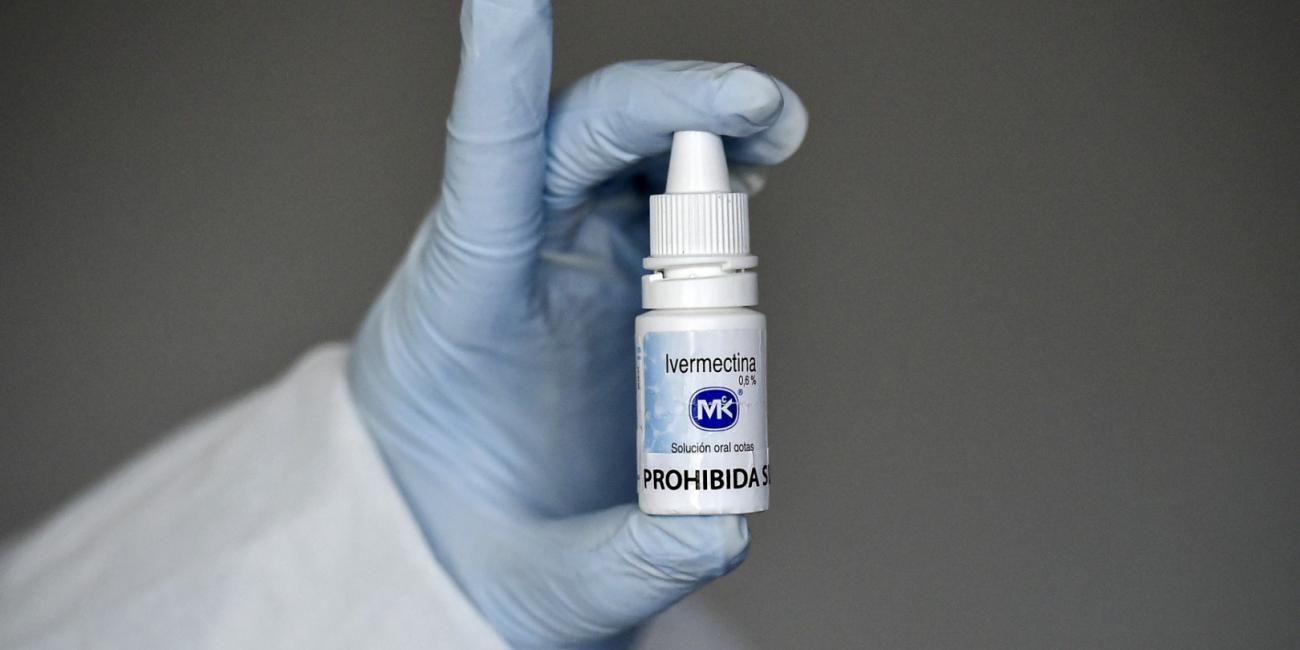
Social media posts misrepresent study to claim 'egg yolk helps prevent Covid in humans'
- This article is more than two years old.
- Published on February 23, 2023 at 07:56
- Updated on February 23, 2023 at 08:11
- 2 min read
- By Kate TAN, AFP Australia
"PREVENT'S COVID! Do you understand why gov'ts are messing with chicken feed & destroying egg farms! Chicken Egg Yolk Antibodies (IgYs) block the binding of multiple SARS-CoV-2 spike protein variants to human ACE2," reads a tweet published on February 2, 2023.
The Twitter post includes a link to and a screenshot of a study titled "Chicken Egg Yolk Antibodies (IgYs) block the binding of multiple SARS-CoV-2 spike protein variants to human ACE2", which was published in the peer-reviewed journal International Immunopharmacology in January 2021.
Image
 A screenshot of the misleading post, captured on February 21
A screenshot of the misleading post, captured on February 21

The same claim and screenshot of the study were shared by users in the United States here and in Australia here in a Telegram group with nearly 20,000 users.
However, the claim is false.
Misused egg yolk antibody study
Duan Shengbao, an associate researcher at the Chinese Academy of Sciences Suzhou Institute of Biomedical Engineering and Technology who took part in the study, told AFP they were unable to conclude that eggs can guard against the virus in humans without further studies.
While the team found certain antibodies within egg yolks extracted from hens immunised against Covid-19 had a neutralising effect on the virus, Duan stressed that the study had been conducted in vitro -- outside of a human body -- and that the study used a modified version of the virus known as a pseudovirus.
"Our study only shows that the SARS-CoV-2 immunised egg yolk antibody has a significant inhibitory effect on replication and proliferation of the pseudovirus in vitro," he said. "At this stage, we cannot infer if this antibody is effective in the prevention of contracting Covid-19 in humans. We need more studies for that."
Egg shortages
Other social media users shared the study and misleadingly linked it to egg supply shortages in New Zealand and the United States, such as here, here and here.
Michael Brooks, director of New Zealand's Poultry Industry Association, told AFP that the country's egg shortage was mainly caused by a 2012 government ban on inhumane battery cages, which came into effect at the end of 2022.
During the decade-long transition period that followed, some farmers switched to colony cages, which animal welfare groups said were still cruel to the birds. Some major New Zealand supermarket chains further announced they would stop selling caged eggs by 2027.
Brooks said the supermarket chains' decision -- combined with the Covid-19 pandemic, inflation and rising grain prices -- further contributed to the egg shortage. He went on to say there is a shortage of about 400,000 laying hens in New Zealand.
An outbreak of avian influenza has caused similar egg shortages in the United States. AFP has previously debunked claims linking the country's egg shortage to Microsoft founder and billionaire Bill Gates.
More than 58 million birds have been affected since early 2022, according to the Centers for Disease Control and Prevention (CDC).
Lilong Chai, an assistant professor at the University of Georgia's College of Agricultural and Environmental Sciences, told AFP earlier in February that more than 40 million "table egg-laying hens" have died.
Copyright © AFP 2017-2026. Any commercial use of this content requires a subscription. Click here to find out more.
Is there content that you would like AFP to fact-check? Get in touch.
Contact us




